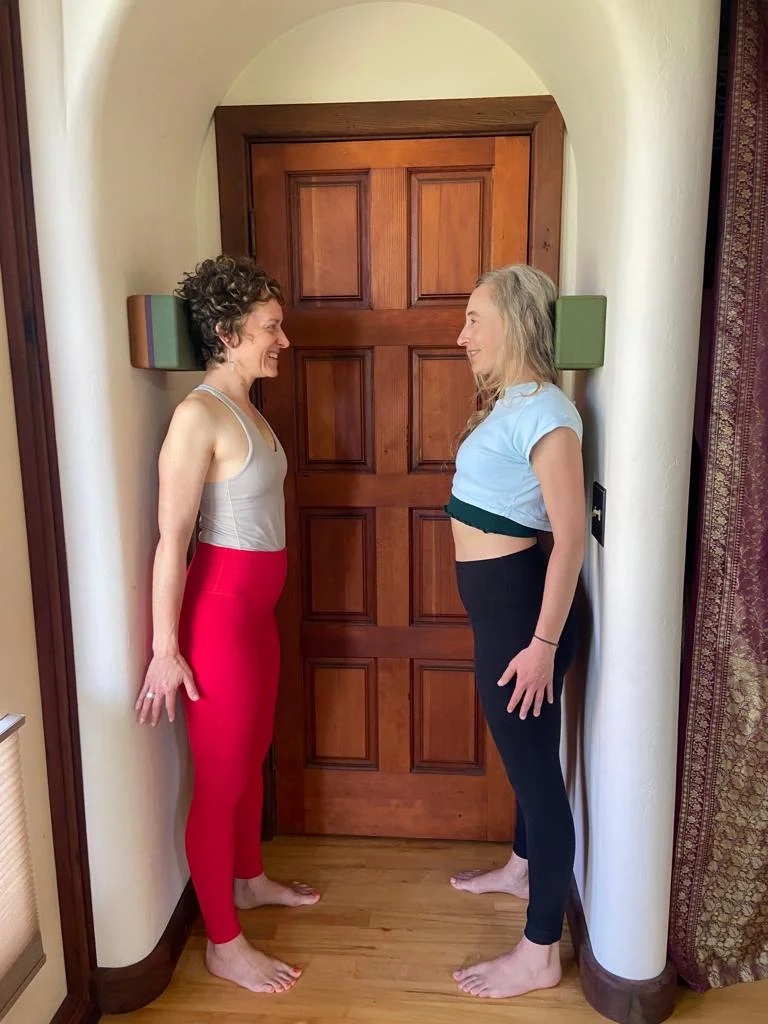Updated 10/5/24
So you are interested in becoming a yoga therapist?
Yoga therapy is a specialized discipline within the realm of yoga. It leverages a comprehensive toolkit, including yoga postures (asanas), pranayama (breathing techniques), mindfulness meditation, and other components of the yoga tradition. Its primary objective is to facilitate individuals in attaining a state of holistic well-being encompassing physical, mental, and emotional facets of their health.
Yoga Therapy has gained significant recognition and is rapidly expanding as a respected modality. It’s garnering increased attention not only in public hospitals, private clinics, and non-profit organizations but also among the general public. A primary catalyst behind this growth is the substantial body of research supporting its effectiveness. As high-quality studies continue to unveil the measurable benefits of Yoga Therapy, the demand for qualified Yoga Therapists grows.

Your work as a yoga therapist will entail the design and implementation of tailored, evidence-based yoga interventions. These will align with each client’s unique needs and circumstances. These interventions may involve a personalized sequence of yoga postures aimed at improving physical strength, flexibility, and overall wellness. Additionally, you will incorporate breath work practices to cultivate emotional resilience and mental clarity. The practice of mindfulness meditation will serve as a powerful tool in fostering mental stability and emotional equilibrium.
How do I become a Yoga Therapist?
If you’re interested in becoming a yoga therapist, here’s what you need to know. Detailed below is both the training requirements and steps to take to start a career in this field.
Complete a 200-Hour Yoga Teacher Training (YTT) Program
The first step to becoming a yoga therapist is to complete a 200-hour yoga teacher training (YTT) program that is registered with Yoga Alliance. This program will provide you with the foundational knowledge and skills you need to become a successful yoga teacher. During the program, you will learn about anatomy, physiology, yoga philosophy, asana alignment, and teaching techniques. You will also have the opportunity to observe experienced teachers and gain hands-on experience teaching students. If becoming a Yoga Therpist is your goal, make sure that your 200-Hour course is instructed by C-IAYT Certified Yoga Therapists. This will make sure that the foundation of your study is aligned with the profession.
Gain Additional Education in Yoga Therapy
Once you have completed your 200-hour YTT program, you will need to gain additional education in yoga therapy. This education will help you develop a deeper understanding of how to use yoga as a therapeutic tool. It will also help you to help clients achieve their health and wellness goals. You can pursue a yoga therapy certification through a recognized yoga therapy training organization. These programs typically require a minimum of 800 additional hours of training and may include both in-person and online coursework. The International Association of Yoga Therapists lists of all schools that have and maintain accreditation status.
Choose a Specialty
As a yoga therapist, you may choose to specialize in a specific area of health and wellness. For example, you might choose such as stress management, chronic pain, or addiction. This will require additional training and education in that specific area. Consider attending workshops, conferences, and other training opportunities. These will deepen your knowledge and skills in your chosen area of specialization.
Get Clinical Experience
Clinical experience is essential for becoming a successful yoga therapist. This experience will help you develop your skills, build your confidence, and gain a deeper understanding of how to work with clients. Consider volunteering your services at a local hospital, rehabilitation center, or community center. You can also seek out opportunities to work with private clients and build your client base.

Join a Professional Association
Becoming a member of a professional association dedicated to yoga therapy offers numerous advantages. It keeps you abreast of evolving industry trends, fosters valuable connections with fellow professionals, and provides exclusive access to ongoing educational resources. The International Association of Yoga Therapists (IAYT) stands as a pioneering force in the field, committed to elevating yoga’s status as a recognized and esteemed therapeutic modality.”
Seek Licensure
In some states, licensure is a requirement to practice yoga therapy. Licensure requirements vary by state, but typically include completion of a recognized yoga therapy training program, clinical experience, and passing a licensure exam. It is important to research the licensure requirements in your state and take the necessary steps to become licensed if required.
In conclusion, becoming a yoga therapist requires dedication, commitment, and a deep understanding of the practice of yoga. By following these steps, you can build the skills and knowledge you need to provide effective yoga therapy services to clients. Whether you’re looking to help others achieve greater physical, mental, or emotional well-being, a career as a yoga therapist can be both rewarding and fulfilling.